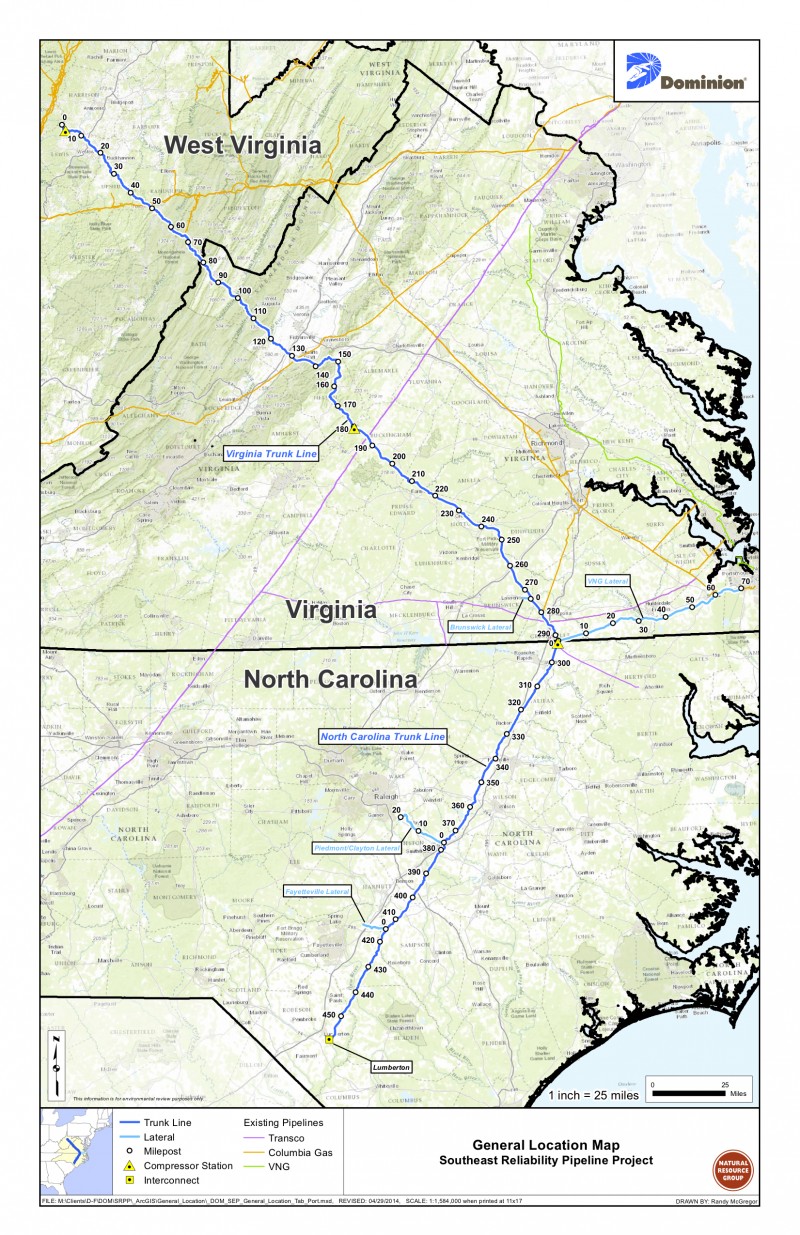McAuliffe defends pipeline support at climate-change meeting
Environmentalists worry that the pipeline could damage federally protected public lands in the George Washington and Monongahela national forests and indirectly encourage fracking from companies enticed by a cheap, quick way to get their product to market. The National Forest Service is considering whether to make lands in the Virginia lands available for fracking — a practice McAuliffe insisted he would fight.
“They support me on what my decision is. I have told them they will not allow fracking in the national forest,” McAuliffe told reporters outside the meeting. “I do not support fracking as governor of the commonwealth and we’re in mutual agreement on that.”
Calls to the National Forest Service were not returned Wednesday.
The pipeline debate highlighted the competing interests McAuliffe must satisfy.
This summer, McAuliffe reconvened by executive order the Climate Change and Resiliency Update Commission. The panel was initially established by former governor Timothy M. Kaine (D), but it went dark under his successor, former governor Robert F. McDonnell (R).
McAuliffe appointed dozens of businesspeople, environmental activists and lawmakers to the commission and charged them with producing a report within one year on ways to combat climate change, which has had particularly devastating effects on the state’s coastal areas. However, when the time came for questions, the first one was about the pipeline.
Henry “Hap” Connors, who sits on the Commonwealth Transportation Board, asked: “Can you give us a little more information about the natural gas pipeline?”
McAuliffe repeated his pitch for the $5 billion project.
“It will be a game changer for the commonwealth on job creation. It will also be very good for our environment,” he said. “This has nothing to do with fracking. That gas is out West. That gas will be taken to Texas or Louisiana or somewhere else. We’re not doing the fracking; I want to be very clear about that … We will take spurs off of this natural gas pipeline to build a huge new manufacturing base.”
In addition, McAuliffe said last week that the pipeline would prevent spikes in energy bills during severe weather and give Virginians “direct access to the most affordable natural gas supply in the United States.” He added that the pipeline would allow Dominion to close old coal-fired power plants, which McAuliffe said emit more emissions than fracking.
Mike Tidwell, founder and director of the Chesapeake Climate Action Network, disagreed: “There is no question whatsoever that this gas is coming from fracking and fracking drilling vents an enormous amount of methane into the atmosphere — and that’s over 20 years, over 80 times more powerful at trapping heat than carbon dioxide,” he said.
Although Tidwell called on McAuliffe to withdraw his support for the pipeline, he praised the governor for re-launching the climate change commission.
Another commission member, Cale Jaffe, director of the Virginia office of the Southern Environmental Law Center, said many recommendations of the previous climate change commission would be satisfied by carbon emission regulations released this summer by the U.S. Environmental Protection Agency’s Clean Power Plan.
The McAuliffe administration is working on a formal response to the proposed regulations that calls for changes that would take into account Virginia’s efforts to reduce its carbon footprint, such as reliance on nuclear energy.
“What the EPA is trying to do and the goals are laudable, however one size doesn’t fit all,” McAuliffe said. “If some of the [proposed regulations] were left in there, [this] could absolutely cripple our economy.”

Dominion’s Pipeline Plan












 By United States Geological Survey
By United States Geological Survey

You must be logged in to post a comment.